Erotica, sin, shame and secrecy
Writing fiction, particularly erotica, is a very intimate process. You mine, consciously or unconsciously, your imagination and experience. You discover what topics or situations or characters trigger and sustain your creativity.
As your fiction piles up behind you like a series of cast-off skins, themes and attitudes emerge that tell you and your readers something about how your mind works and where your heart lies.
Erotica as genre is often seen as an opportunity to escape from the real world into fantasy or to reinforce the idea that you are not alone in the cravings you have and the delights that you seek.
In my own writing, erotica seems to become more of an entanglement than an escape. Time and again I find myself writing about sin, shame, and secrecy.
If writing tells you about the writer then clearly I’m not one of these liberated souls who enjoy sex openly and honestly and dive naked into the pool, grin at their readers and say, “Come on in, the water is lovely.”
I’m more the guy you find in the kitchen at parties or reviewing the CD rack and wondering why the CDs aren’t alphabetised. The one who looks and longs but rarely acts and my writing reflects that.
The cool kids in the pool can write fine, sex-positive erotic stories about the transcendent joy experienced by those who open themselves in a healthy and honest way to their own desires. The problem is that those who share this experience are probably too busy fucking to read erotica and those of us in the kitchen, who eagerly seek erotica, are left either envious or, more likely, unconvinced.
So I try to imagine the people who read my stories finding parts of themselves in them. Some parts they will like and some will make them squirm but I still want them to experience a sense of recognition.
In my mind, my readers have a rich inner life, a craving for sex and a deep understanding of the nature of sin, shame, and secrecy.
To the kids in the pool, my readers are the sexually repressed folks who get off in secret to things they are too up tight to do in real life.
If one believes the women's magazines, then sexual repression is a bad thing. These poor repressed people could be fulfilled and happy if only they would self-actualise, embrace all of the parts of their nature as aspects of themselves, live in the here and now from time to time, put aside their inhibitions and just do it.
This is the Nike generation version of "turn on, tune in, drop out.” It comes out as "Open up, kick back, get off."
I'm unconvinced by the idea that just because something is nice it is also good. Some nice things are exactly the opposite of good.
When I write, I think about people who have to struggle to be good; people with strong sexual urges who demonstrate restraint rather than repression; people who, when the restraint fails, experience shame and regret mixed in with their underlying pleasure.
These people understand, at least at an intuitive level, the concept of sin.
I am an atheist by conviction but I find that an understanding of sin is an asset in writing erotica, so pardon me for a paragraph or two while I don my "Father Mike" costume and expound.
Most Christians are aware of the seven deadly sins but few seem to me to understand them. They are about excess. They are about persisting in behaviours that damage your ability to see the world in a way that enables you to choose good over evil.
Hunger is not a sin, gluttony is. Relaxation is not a sin, sloth is. Desire is not a sin, lust is.
Persistence in sin shapes the sinner, twisting them, perhaps crippling them, and making it harder and harder to be a person who does not sin.
Before we get to lust, let's start with gluttony. All of us get hungry. Many of us get cravings for particular types of food. A very few of us passionately desire food. Not all of those who passionately desire it are gluttons. The glutton MUST eat. The glutton will sacrifice their dignity, their income, their time, in order to eat.
In modern parlance this "sinful" behaviour is pathological: in other words, it acts upon the person in the same way as a disease.
Have you ever eaten to excess, to the point where it hurts to eat more and yet your hand still reaches out for another portion and your mouth chews food your mind knows you do not need and cannot process? To understand gluttony you must think of feeling that way persistently. Think of what it would do to you. What impact you would have on others. Think about the moral and economic implications. Then think about doing it anyway. Every day. Then you start to understand the sinful/pathological nature of gluttony.
To me, a person who has a strong desire for food, who knows what it means to eat beyond the point of satiation and who decides not to do that today, is showing restraint, not repression.
The analogy with Lust is obvious.
So imagine a reader who knows, deep in their gut, that if they gave themselves up to the sexual desire inside them, the world would not be enough. So each day, driven by their knowledge of sin and their desire to retain the grace to live well, they show restraint.
But each and every day is a struggle and some days they lose.
Perhaps on such days they read erotica. Perhaps this allows them to come to the brink, look over the edge but not jump off. And perhaps, having lost the struggle just a little, they feel shame.
It would be a mistake to imagine that the shame is to do with sex. The shame is to do with lacking the strength to be who you want to be and the sure and certain knowledge of who your own weakness could allow you to become.
And with shame comes secrecy.
This kind of secrecy is not about hiding a lie but about bolstering the truth.
If I "come out" and say, "Actually, I spend most mornings wanking over porn, I mentally undress strangers, I occasionally have affairs and, if I could do it without getting caught, I would fuck the brains out of every pretty (and some not so pretty) thing in town" I might be being honest but I would not be doing good.
This kind of public statement would seem like an affirmation. It would change how others see me. It might encourage others to say, "I too want this”; which would be fine if "this" was the person I wanted to be. But if I aspire to be the kind of person who treats himself and others with respect and sometimes love, then when I read the erotica and when it gets me off and even when I recognise it says something true about me and those around me, I will not proclaim this publicly. I will keep my lapses secret in the hope that I may eventually succeed in living up to my aspirations.
So is my imaginary reader someone who denies his own nature, feels bad about himself for no reason and then cloaks his behaviour in a hypocritical secrecy? Or is he someone who understand goodness because he feels the pull or sin, experiences shame as an indicator that he has not yet lost all judgement and turns to secrecy as a lifeline that allows him another chance at goodness tomorrow?
I believe that one of the skills for a writer of erotica is to know how to raise these questions and leave the reader to invent the answers.



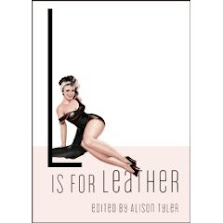
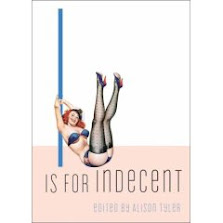


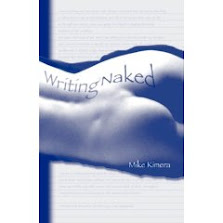
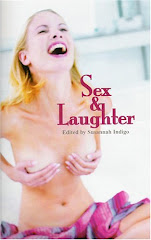
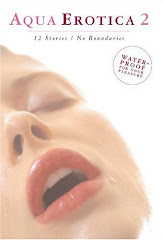

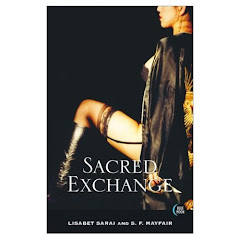
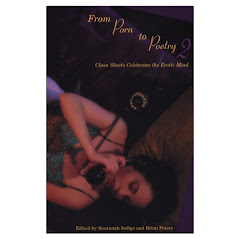
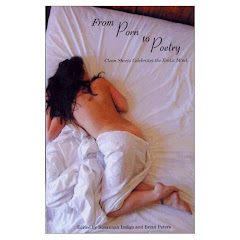



2 comments:
What a wonderful article. Hmmmm...
I am most definitely one of the longers, aphabetizing the CD rack.
Hi rg,
thank you. I thinking longing produces better fiction. Gratification disperses desire. Longing amplifies it. And besides, you can meet interesting people in the kitchen at parties.
Post a Comment